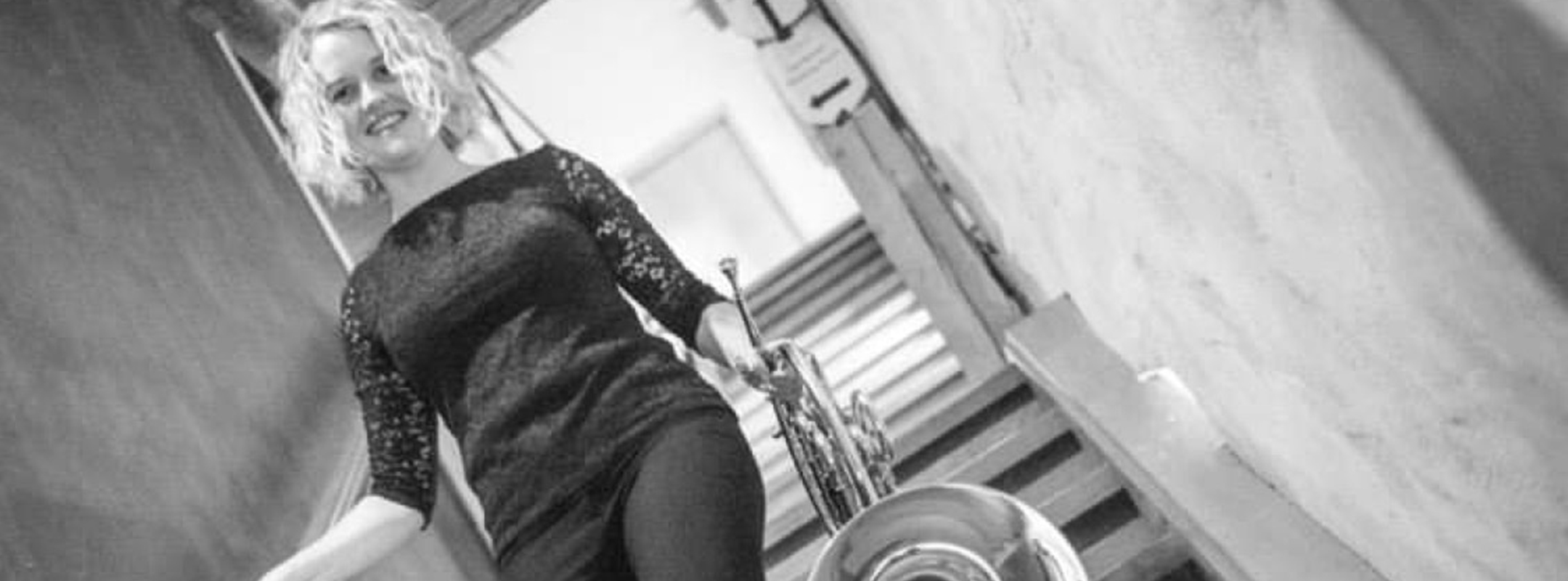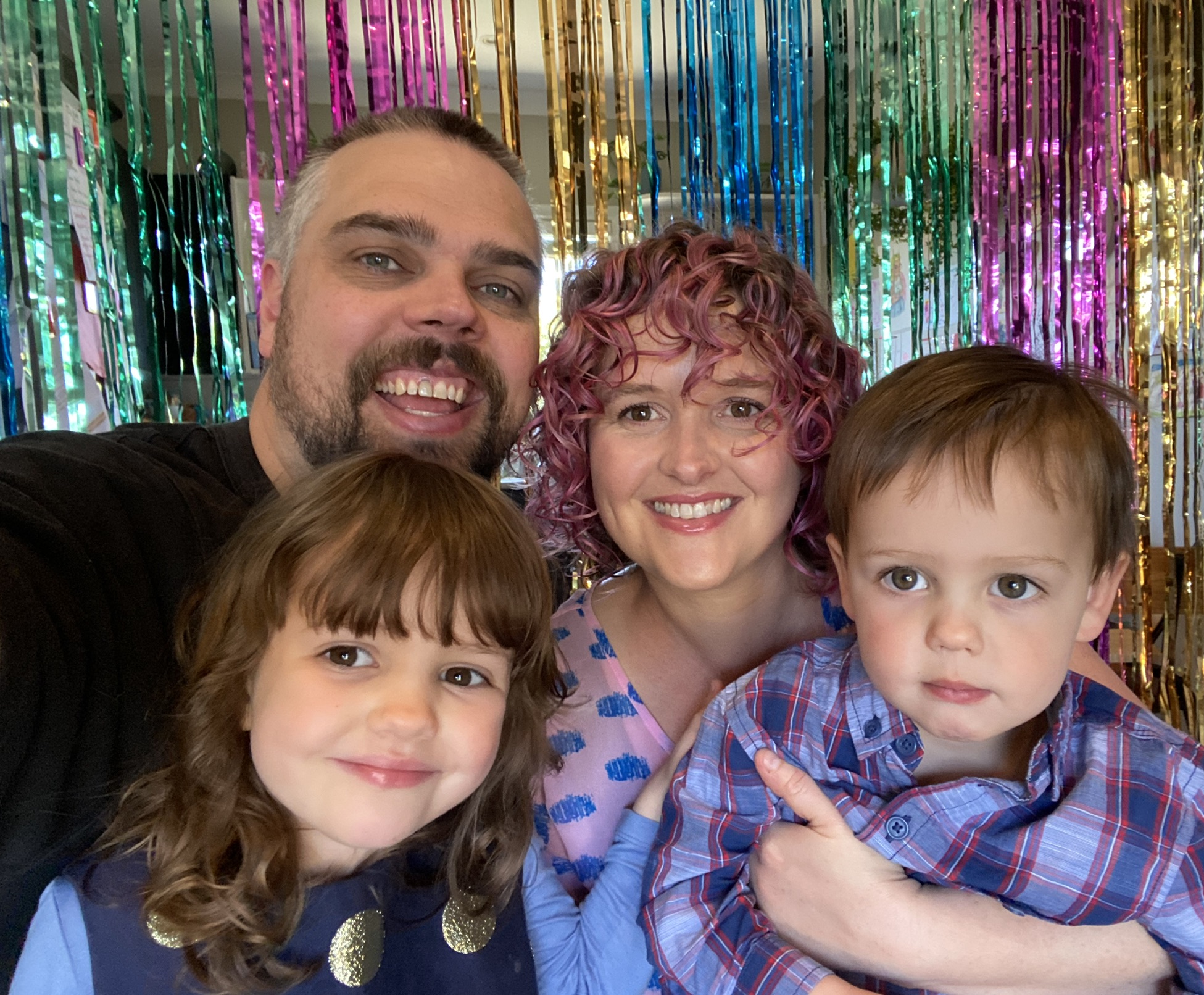
horn, 2010
To celebrate ten years of the partnership between Southbank Sinfonia and EFG Private Banking, and to highlight how together we have helped musicians from across the world build successful and varied careers, we are presenting 10 for 10: 10 alumni stories over 10 months shining a spotlight on the achievements of our brilliant alumni.
In this month's edition of 10 for 10, we caught up with 2010 horn player Abbey Edlin about what she's been up to since completing the Southbank Sinfonia Fellowship.
I grew up in brass bands, and started my musical life as a cornet player - I didn’t begin learning french horn until my mid 20s. Because I came to the instrument relatively late in life I didn't have many opportunities to play in youth orchestras, which can provide invaluable experience as a young musician. I had finished my studies, but I wasn't really ready to enter the professional world, I was really lacking in confidence and wasn’t sure I was good enough to make it as an orchestral musician. I had heard about Southbank Sinfonia, but being in New Zealand, I thought there was no way I could afford to travel to London to audition, it was just fate that I happened to be playing with the Southern Sinfonia in Dunedin, New Zealand when I learned about a scholarship that was available for a musician from the region I was from! It seemed too good to be true. Simon Over had a special relationship with the Southern Sinfonia, and the next time he was in New Zealand, I arranged my audition and was incredibly lucky to gain a position in the orchestra.
What is your favourite memory from your time in Southbank Sinfonia?
I have so many incredibly fond memories of my time in Southbank Sinfonia, almost too many to recall. I loved almost every minute of it! I came from a small city in New Zealand, and moving to London for a year was one of the most exciting and terrifying things I had ever done. I fell in love with the city, and made some wonderful friends within the orchestra. I have two musical highlights which really stand out for me. Playing Bach's B minor Mass in St Martin in the Fields was incredibly special, and Mahler's Symphony No.2 in a combined concert with Bournemouth Symphony Orchestra and Marin Alsop in the Royal Festival Hall was absolutely spectacular - we had a huge choir with hundreds of singers, the performance bought tears to my eyes. It remains one of the musical highlights of my career to date. The absolute highlight for me though would have to be the trip to Anghiari. Playing chamber music, with good friends in one of the most picturesque places I had ever seen was something I will never ever forget.
What have you been up to since completing the Southbank Sinfonia fellowship?
I completed Southbank Sinfonia in 2010, so a great deal of things have happened since then. After the fellowship finished I left London to move to Sydney with my partner, who gained a trombone position in the New South Wales Police band. I worked as a freelance musician in Sydney with the Australian Opera and Ballet Orchestra and the Sydney Symphony for about 5 years before gaining a tutti horn position in the Melbourne Symphony Orchestra at the end of 2014. Two years after I won my job, my partner Richard won the Second Trombone position also in the MSO. We now have two amazing children, Harriet and Benjamin who are 2 and 4 years old. They certainly keep us on our toes!

How did being in Southbank Sinfonia help you in your achievements since leaving the orchestra?
The experience I gained during my time in Southbank Sinfonia was so invaluable. As a french horn player it is often difficult to play early repertoire in a professional setting. You are often only booked when horn section needs more than four horn players, so I had very little experience playing music that requires only two horns. I loved being able to play Mozart, Haydn, Beethoven - the list is endless! Also having the chance to play chamber music and be mentored by some amazing guest artists and conductors was an incredible opportunity. I gained so much confidence during my time with the orchestra, and it made me realise that this was what I wanted to do: I absolutely wanted to be a professional musician.
What might a typical working week look like for you at the moment?
A typical work week at the moment is absolutely anything but typical! COVID19 has really made things difficult for musicians. Melbourne has been in lockdown for much of 2020, we are only just now starting to be able to perform together in small groups. This week, I am recording some music for a video game soundtrack! During lockdown my work week consists of trying to squeeze in time to practice whilst keeping two very high energy young children entertained!!
What goals do you have for the future?
I hope to always keep on learning, and striving to improve my skills as a musician, and not lose sight of how incredibly lucky I am to have a career doing something I love. I also hope to raise two healthy and happy children.
Do you have a message to pass on to Southbank Sinfonia supporters?
Firstly I want to say thank you so very much. Organisations like Southbank Sinfonia wouldn't exist without support from those people who truly value music, especially during times like this COVID crisis. I would also like to say an extra special thank you to dear Elman Poole who sadly passed away in 2019. My time in the Southbank Sinfonia would not have been possible without his support. The experience I gained during my time in London has absolutely shaped me into the musician I am today, and I will always be grateful.
Find out more about Abbey here.